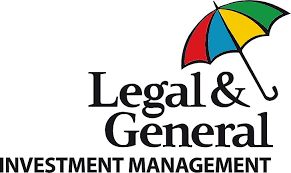What’s next for global trade, global warming and the rise of the global South? Is post-Brexit Britain ‘open for business’ or still ‘out to lunch’? How can we make sure the people of the future remember us fondly? Mark Johnson, Head of Institutional Clients, summarises two days of geopolitics, glaciers and avoiding history’s ‘Pitt’-falls at London’s inaugural Global Investment Management Summit.
When France declared war on Great Britain in 1793, it was expected to be a short and swift campaign. But thanks to France’s manpower and the City of London’s financing it wasn’t until 1815 that peace could be achieved. Sitting in the historic splendour of the Guildhall this week, surrounded by reminders of Britain’s past – Pitt, Nelson, Wellington – and with conflict raging in eastern Europe, we were reminded of Mark Twain’s famous maxim: “history doesn’t repeat itself, but it does rhyme.”
Polarised about polar ice
The inaugural Global Investment Management Summit was an event co-sponsored by LGIM and twenty other firms, designed to showcase the very best of the UK’s asset management industry. Delegates were treated to a welcome from the Chancellor, Jeremy Hunt; the 694th Lord Mayor, Nicholas Lyons, and Lord Dominic Johnson, Minister for Business and Trade. The message to a global audience of 140 asset owners was clear: unshackled by Brexit, the UK is open for business. Quite whether delegates believed the hype remains to be seen but we soon got down to more important matters.
Much of the first day was given to ESG. Gilliam Tett, the FT’s US editor, spoke about the polarised nature of the debate in Washington and of banks, past and present. She observed the shift from Milton Friedman’s ‘shareholder doctrine’ in which the pursuit of profit is the ultimate goal to one where stakeholders matter: a ‘lateral vision’ for corporates that reflects climate, social and medical issues highlighted by the #MeToo movement. Gabrielle Walker, the renowned climate scientist, spoke of the urgency to act and – in a moment that silenced the entire room – read from a memorial to a vanished glacier in Iceland.
A letter to the future
Ok is the first Icelandic glacier to lose its status as a glacier.
In the next 200 years all our glaciers are expected to follow the same path.
This monument is to acknowledge that we know
what is happening and what needs to be done.
Only you know if we did it.
Our very own Michael Marks spoke on a panel about LGIM’s focus on climate and stewardship, encouraging laggards to do more as examples to others. We heard about the enormity of the challenge to ensure a just transition and the opportunities created by the US’ Inflation Reduction Act, a $700 billion investment in health and climate. And then we moved on, to diversity and demography, pausing only to hear from Hella Thorning-Schmidt, former Danish PM on climate as a ‘geopolitical actor’. At dinner in the great hall that night guests were greeted by trumpeters from the Household Cavalry. Following this, Lord Hill, former EU Commissioner for Financial Stability, told us of his relief that stability at Westminster had allowed for a reset with Brussels.
Fault lines of the future
At breakfast on day two, early risers enjoyed William Hague’s treatise on three key fault lines: central Europe and the Balkans, the Middle East and South China Sea. Together with Richard Shirreff, the ex-NATO deputy commander and Alexander Stubb, former Finnish PM, we heard insights into the struggle between autocracy and democracy and the rise of the global South. Of Russian revanchism and the weaponisation of trade, information and money. “Politics is back” they declared, before adding that “If we over-rationalise the past, and over-dramatise the present, we underestimate the future.”
The rest of the morning was given to Zetta Bytes and the digitalisation of investment. The heads of Aberdeen, Fidelity and Vanguard spoke of a future in which traditional boundaries between asset classes no longer exist. Instead we live in a world in which markets are ‘dematerialised’ and assets ‘atomised’ by blockchain and other technologies to create true democratisation for investors. Nikhil Rathi, FCA chief executive, reminded us of the power of UK asset managers and the responsibility to our customers that comes with that.
We emerged from the Guildhall, blinking into the daylight, inspired and alarmed in equal measure. There is much work to be done but, as we were reminded, only future generations will know if we did it.

